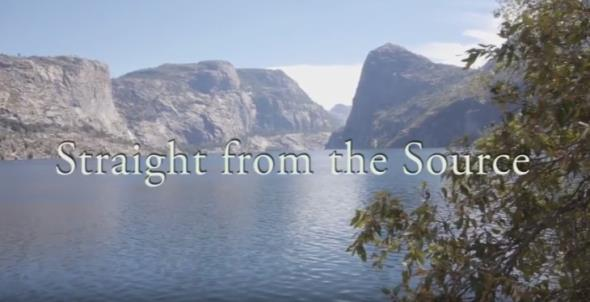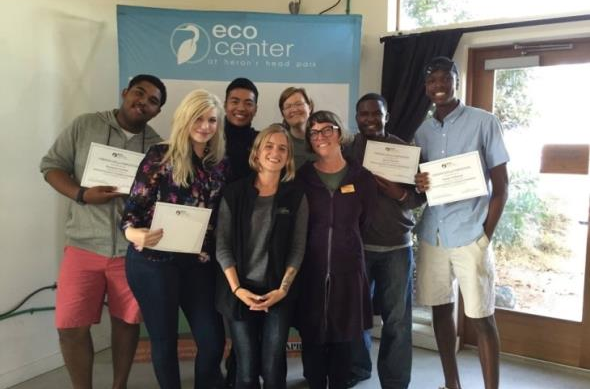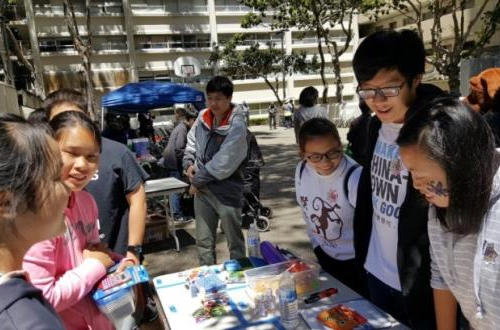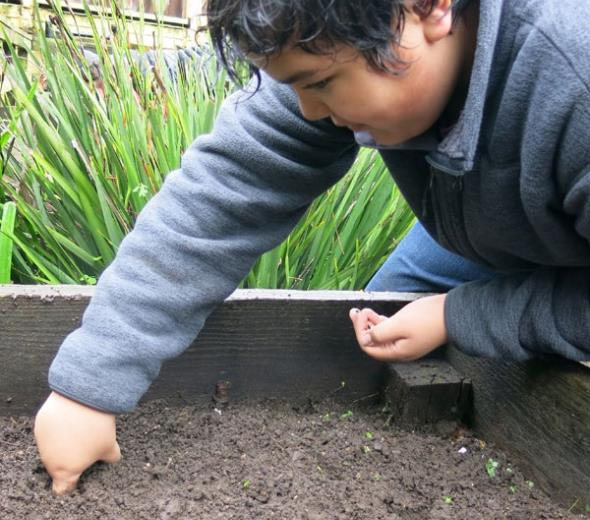Project Learning Partnership Grant Program
We’re committed to being a good neighbor in the communities where we operate and provide services.
Our Agency offers 15-25 Project Learning Grants (PLGs) for $15,000-$25,000 to local nonprofits to fund projects providing youth and young adults from underserved communities with educational and employment programs. These grants support projects that increase the understanding of water, power and sewer services while fostering the next generation of environmental stewards. As a result, community organizations and local nonprofits are able to provide 600+ youth each year with summer and after-school employment opportunities.
Shining a Light on Our Project Learning Grant Projects
Over the years, our Project Learning Grantees have supported a diverse range of community organizations that support and provide opportunities to San Francisco’s youth. Here are a few examples of the great work these organizations have accomplished to date.
Bay Area Video Coalition (BAVC)

In Summer 2016, BAVC hosted 14 teens in its filmmaking internship program. Youth participants created 11 films, and a handful focused on water, power and sewer. The films were screened at the Roxie Theatre in San Francisco’s Mission District and during the Bernal Heights Outdoors Cinema Film Crawl. Watch their films, Straight from the Source, which explores SFPUC’s process of bringing high-quality drinking water from the valleys of Hetch Hetchy to the homes of local residents.
EcoCenter at Heron’s Head Park

The EcoCenter at Heron's Head Park is an educational community center that uses sustainable onsite power, water and wastewater systems. With the support of the Project Learning Grant, the center launched the EcoCenter Youth Learning Program. Under the program, high school students from Bayview Hunters Point studied environmental stewardship and gained hands-on work experience with sustainable water, power and wastewater treatment technologies. Interns also participated in workshops to familiarize themselves with the EcoCenter’s sustainable practices and learn professional skills like resume and cover letter writing. Daily activities allowed the interns to hone leadership capabilities, from supporting educational programming to landscaping the center’s constructed wetland.
Chinatown Community Development Center (CCDC)

With their Project Learning Grant, the CCDC held a summer youth program in which more than 20 Asian and Asian American youth participated in classes and educational activities related to water, power and sewer. For each lesson they learned, CCDC program participants created an activity to engage with local communities about environmental stewardship and conservation. During one event, the SRO Families Collaborative Family Fun Day, program participants taught more than 150 attendees about how to properly sort trash while emphasizing the importance of composting and recycling materials. In total, CCDC youth-led seven community events reaching more than 500 community members.
Community Grows

For several years in a row, Community Grows has received Project Learning Grants to support its Band of Environmentally Educated and Employable Teens (BEETs) Program, an initiative teaching youth job readiness, life and ecoliteracy skills. During the fall of 2016, BEETS participants, completed workshops and training centered around garden maintenance, soil, seasonal planting, energy efficiency and water conservation.
They also learned about food access and the importance of fresh, affordable and nutritious food. In addition to learning, teens designed and created patio gardens in a local apartment complex. The gardens used drought-tolerant plants and water utilization conservation techniques.
BAYCAT
Through intensive instruction and participation in the BAYCAT studio, BAYCAT interns learned invaluable artistic and job training experience. The interns were responsible for developing several videos from conception through completion, giving them the unique opportunity to learn how to create short documentary films, and to learn more about water and wastewater treatment, the SFPUC and the many ways people can have a positive impact in their communities.
“Working on the SFPUC project was great! Editing 3 short videos in a certain amount of time helped me test my good judgment and problem-solving skills as an editor. It felt like solving a puzzle because there was so much information given in each interview, but we could only choose a few seconds of it to send the message. I realized that making a 30-second video isn't as easy as it sounds, but I learned how important it is to establish the idea in pre-production so you have something to follow later in post.” - Daisy Maldonado, BAYCAT intern

